Discover the top 30 majors poised to revolutionize our future! From AI to biotech, these game-changers are shaping the world ahead!
In a rapidly evolving world, the importance of education and specialization in various fields cannot be overstated. As we progress into the future generations, specific degree programs have the potential to make a significant impact on our global society.
By examining the current trends and cutting-edge research, we can identify the top 30 majors poised to shape the world in the next decade.
This article will delve into these disciplines, highlighting their potential breakthroughs and global impacts while incorporating thought-provoking quotes from industry leaders.
Table of Contents
Key Factors
Factors that may make some majors more likely to change the world than others in the future. Please note that these factors are not exhaustive, and the impact of a major will vary based on individual achievements and the specific context of each field.
Technological innovation: Majors that involve cutting-edge technology or enable breakthroughs in various fields have a higher potential to change the world. Examples include artificial intelligence, biotechnology, and renewable energy. Source: World Economic Forum
Addressing global challenges: Majors that directly address pressing global issues like climate change, poverty, and inequality will likely have a significant impact. Examples include environmental science, sustainable development, and public health. Source: United Nations Sustainable Development Goals
Interdisciplinary approaches: Majors that combine multiple disciplines and encourage collaboration are more likely to produce innovative solutions to complex problems. Examples include systems engineering, cognitive science, and data science. Source: Nature
Influence on policy and decision-making: Majors that equip graduates with the skills to shape public policy and influence decision-making can have a substantial impact on society. Examples include political science, economics, and law. Source: Foreign Policy
Promoting social and cultural understanding: Majors that foster a greater understanding of diverse cultures, societies, and historical perspectives can contribute to a more inclusive and tolerant world. Examples include anthropology, sociology, and history. Source: American Anthropological Association
Improving education and access to information: Majors that focus on transforming education systems and providing access to information can empower individuals and communities. Examples include education, library and information science, and instructional technology. Source: UNESCO
Majors Most Likely to Change the World
#1. Artificial Intelligence (AI) and Machine Learning

Artificial Intelligence (AI) and Machine Learning (ML) are powerful tools with the potential to reshape many aspects of our lives. Here’s how they could change the world:
Efficiency and Automation: AI and ML can automate routine tasks, increasing efficiency across various sectors like manufacturing, retail, healthcare, finance, and more.
Healthcare: In the medical field, AI and ML can help predict disease, assist in diagnosis, personalized treatment plans, and improve drug discovery.
Climate Change: AI and ML can model complex climate systems, predict environmental changes, optimize energy usage, and support the development of sustainable technologies.
Education: These technologies can personalize learning experiences based on a student’s strengths and weaknesses, potentially revolutionizing the education sector.
Data Analysis: AI and ML can analyze large datasets quickly and accurately, helping in everything from business decision-making to scientific research.
Transportation: AI is a key component in the development of self-driving vehicles, which could transform transportation, reducing accidents and optimizing traffic flow.
The belief that AI and ML can change the world is not just based on speculation but also on observable trends and research by computer scientists. Various sources highlight the potential impact of AI and ML. Here are a few:
- “Artificial intelligence — The revolution hasn’t happened yet” by Michael Jordan (Harvard Business Review)
- “Preparing for the Future of Artificial Intelligence” (National Science & Technology Council Committee on Technology)
- “Artificial Intelligence, Automation, and the Economy” (Executive Office of the President, National Science and Technology Council Committee on Technology)
#2. Renewable Energy and Sustainable Engineering

Renewable Energy and Sustainable Engineering are fields that focus on developing, implementing, and improving energy technologies and systems that are environmentally friendly, economically feasible, and socially acceptable. They have the potential to greatly influence our world in various ways:
Combating Climate Change: Renewable energy technologies like solar, wind, and hydroelectric power can significantly reduce greenhouse gas emissions, which are a major driver of climate change.
Energy Security: With depleting fossil fuel reserves and increasing energy demand, renewable energy provides a reliable, sustainable alternative that can help ensure energy security.
Economic Opportunities: The transition to renewable energy can stimulate economic growth and job creation in new sectors.
Sustainable Development: Renewable energy and sustainable engineering can support sustainable development, reducing environmental degradation and promoting health and wellbeing.
Energy Access: Renewable energy technologies, particularly off-grid and mini-grid systems, can provide energy access in remote and rural areas, supporting education, communication, and economic opportunities.
The potential impact of these fields is well-recognized and documented. Here are a few sources:
- “The Power of Renewables: Opportunities and Challenges for China and the United States” (The National Academies Press)
- “The Future of Solar Energy” (MIT Energy Initiative)
- “Renewable Energy and Jobs – Annual Review 2020” (International Renewable Energy Agency)
#3. Biotechnology and Bioinformatics
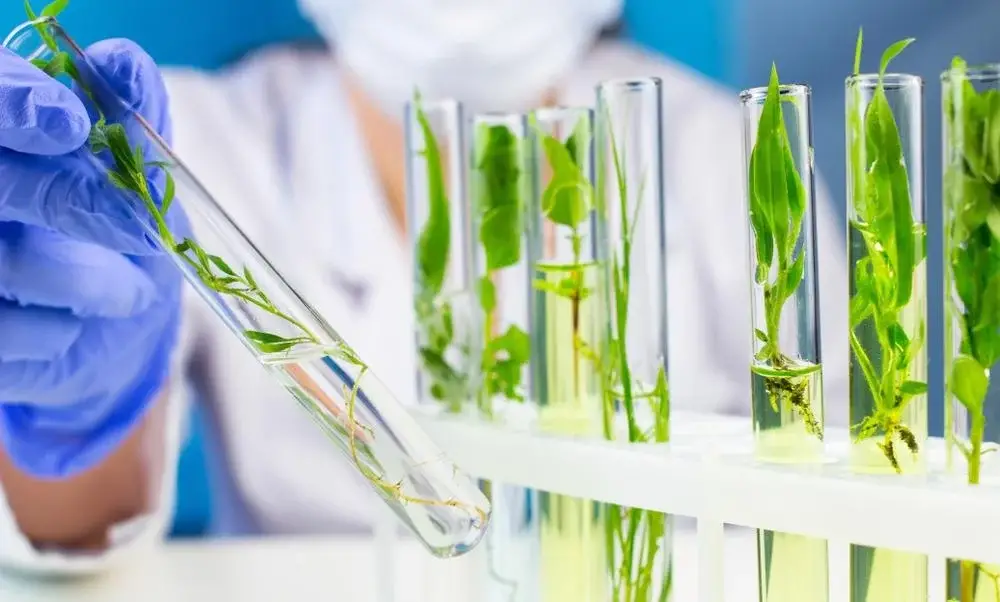
Biotechnology and Bioinformatics are two interdisciplinary fields that blend biology, computer science, and technology. They have the potential to significantly impact our world in the following ways:
Biotechnology:
Healthcare and Medicine: Biotechnology has already revolutionized healthcare with innovations like gene therapy, personalized medicine, and new drug discoveries.
Agriculture: Biotechnology can help enhance crop yield, improve nutritional quality, and develop pest-resistant varieties, contributing to food security.
Environmental Science: Biotechnology can help in managing environmental challenges like waste reduction and pollution control through the development of bio-based materials and bio-remediation strategies.
Bioinformatics:
Genomic Medicine: Bioinformatics allows for large-scale biological analyses, contributing to personalized medicine by enabling the analysis and interpretation of complex genetic data.
Drug Discovery and Development: Bioinformatics tools are vital in the modern drug discovery pipeline, helping identify potential drug targets and analyze the efficacy and safety of drug candidates.
Epidemiology and Public Health: Bioinformatics can track and predict disease spread, contributing to public health strategies and interventions.
The potential for these fields to change the world is widely recognized and discussed in scientific literature and research, such as:
- “The future of biotechnology: An overview” published in the Journal of Commercial Biotechnology.
- “Role of bioinformatics in various aspects of biological research: A mini review” published in the Journal of Data Mining in Genomics & Proteomics.
- “The impact of bioinformatics on vaccine design and development” published in Vaccines.
#4. Environmental Science and Ecology
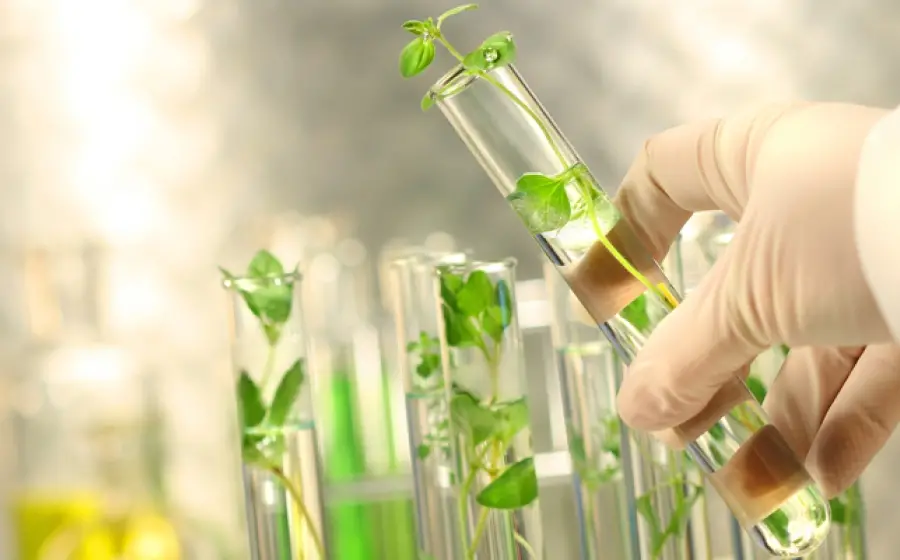
Environmental Science and Ecology are interdisciplinary fields that study how organisms interact with each other and with their environment, and how human activities affect these systems. They have the potential to transform our world in various ways:
Conservation and Biodiversity: These fields are key to understanding and preserving biodiversity. They help identify endangered species, protect habitats, and develop strategies to mitigate the impact of human activities on ecosystems.
Climate Change: Environmental scientists and ecologists study the impacts of climate change on various ecosystems and contribute to the development of strategies for mitigation and adaptation.
Sustainable Development: These fields provide the scientific basis for sustainable management of natural resources, guiding policy and practice in areas such as forestry, fisheries, and agriculture.
Pollution Control: Environmental science is crucial for understanding the impacts of various types of pollution (air, water, soil) and for developing strategies to prevent or mitigate these impacts.
Public Health: By studying the links between environmental factors and human health, these fields can contribute to the prevention and control of diseases and the promotion of public health.
The potential of Environmental Science and Ecology to change the world is recognized and discussed in many sources. For example:
- “Ecosystems and Human Well-being: Biodiversity Synthesis” (World Resources Institute)
- “Climate Change 2014: Impacts, Adaptation, and Vulnerability” (Intergovernmental Panel on Climate Change)
- “Planetary health: from concept to decisive action” (The Lancet)
#5. Sustainable Development and Urban Planning

Sustainable Development and Urban Planning focus on the design and management of urban spaces in ways that balance economic, social, and environmental considerations. These fields have significant potential to influence our world:
Sustainable Cities: Through effective urban planning, cities can become more sustainable, reducing their environmental footprint, improving living conditions, and becoming more resilient to challenges like climate change.
Access to Basic Services: Sustainable urban planning can ensure that all residents have access to essential services like clean water, sanitation, healthcare, and transportation.
Community Development: Sustainable development and urban planning can promote social cohesion and inclusivity, creating safe and vibrant communities.
Transportation: Urban planning plays a crucial role in designing transportation systems that reduce traffic, pollution, and commute times, and promote alternative modes of transport like cycling and public transit.
Green Spaces: Urban planning can incorporate green spaces, which contribute to mental and physical health, biodiversity, and climate regulation.
The potential impact of these fields is widely recognized in academic literature and policy documents. Here are a few sources:
- “The New Urban Agenda” (United Nations)
- “Sustainable urbanization” (United Nations Development Programme)
- “Towards a Green Economy: Pathways to Sustainable Development and Poverty Eradication” (United Nations Environment Programme)
#6. Public Health and Epidemiology
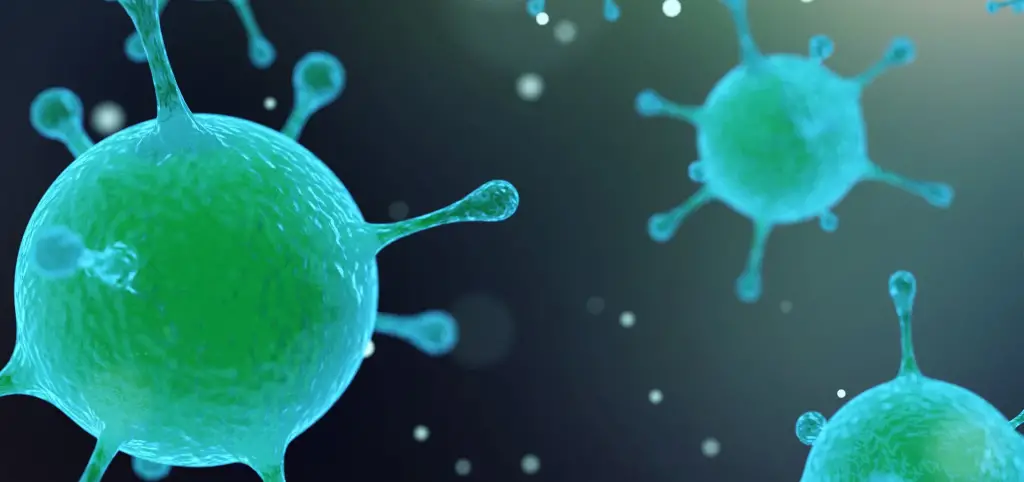
Public Health and Epidemiology are vital fields of study that involve understanding and improving the health of populations. They have the potential to significantly impact the world in the following ways:
Disease Control and Prevention: Public health professionals and epidemiologists work to control the spread of diseases, develop prevention strategies, and contribute to global health security.
Health Systems Strengthening: Public health initiatives focus on strengthening health systems, improving access to care, and ensuring that health services are effective, efficient, and equitable.
Health Promotion: Public health focuses on promoting healthier lifestyles and environments, addressing factors that influence health, such as nutrition, physical activity, and smoking.
Policy Development: Public health professionals play a crucial role in developing policies that improve health, based on epidemiological research and health systems analysis.
Disaster Response and Preparedness: Public health and epidemiology are vital for preparing for and responding to natural disasters, pandemics, and other emergencies.
The potential for these fields to change the world is well recognized and documented. Here are a few sources:
- “Ten great public health achievements — United States, 1900-1999.” (Centers for Disease Control and Prevention)
- “Health systems” (World Health Organization)
- “Public Health, Ethics, and Equity” (Oxford University Press)
#7. Climate Science and Meteorology
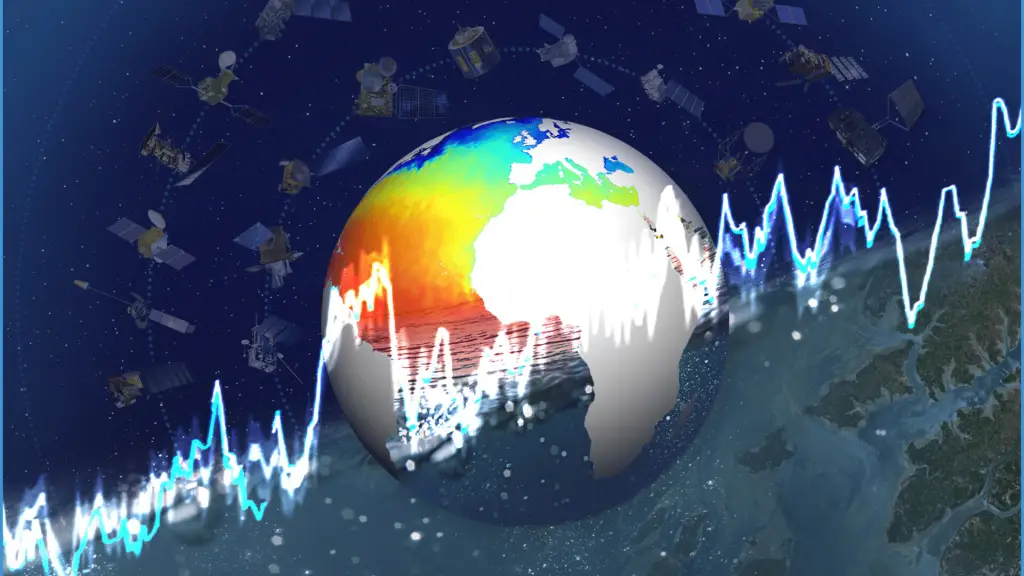
Climate Science and Meteorology involve the study of the Earth’s atmosphere, climate systems, and weather patterns. These fields have significant potential to shape the future of our world in the following ways:
Understanding Climate Change: Climate scientists play a crucial role in researching and understanding the causes, effects, and potential mitigation strategies for global climate change.
Weather Forecasting: Improved weather forecasting, driven by advances in meteorology, can save lives and property by providing early warnings for severe weather events.
Environmental Policy: The work of climate scientists informs environmental policy and international climate agreements, like the Paris Agreement.
Climate Adaptation: Climate science can guide communities, nations, and industries in adapting to climate change, from designing climate-resilient infrastructure to developing drought-resistant crops.
Renewable Energy: Meteorology and climate science contribute to the design and location of renewable energy systems, like wind and solar farms.
The belief that Climate Science and Meteorology can change the world is backed by numerous studies, reports, and consensus in the scientific community. A few sources include:
- “Climate Change 2014 Synthesis Report Summary for Policymakers” (Intergovernmental Panel on Climate Change)
- “State of the Climate in 2019” (Bulletin of the American Meteorological Society)
- “Climate Change Evidence & Causes” (The Royal Society and the US National Academy of Sciences)
#8. Political Science and International Relations

Political Science and International Relations study the systems, structures, and dynamics of power, governance, and relationships between countries. These fields have substantial potential to change the world:
Global Cooperation: International relations scholars can aid in building global cooperation, fostering understanding, and resolving conflicts between nations.
Policy Development: Political scientists help inform policy development at all levels, from local to global, on issues ranging from healthcare to environmental regulation.
Promotion of Democracy and Human Rights: Scholars in these fields can contribute to efforts to strengthen democratic institutions and protect human rights around the world.
Peace and Security: The study of international relations is essential for promoting peace and global security, including through non-proliferation of nuclear weapons and conflict resolution.
Economic Development: Political science can inform policies that promote economic development and address issues like poverty and inequality.
These fields’ potential to change the world is recognized and discussed in numerous academic articles, books, and policy documents. A few sources include:
- “Why Nations Fail: The Origins of Power, Prosperity, and Poverty” by Daron Acemoglu and James A. Robinson
- “The Tragedy of Great Power Politics” by John J. Mearsheimer
- “Political Order in Changing Societies” by Samuel P. Huntington
#9. Economics and Development Studies

Economics and Development Studies examine the mechanisms that underlie economic activity, economic growth, and the development of societies. They can significantly influence the world in several ways:
Economic Policy: Economists inform policies that govern economic activity, affecting everything from interest rates and trade to unemployment and inflation.
Sustainable Development: Development studies researchers can contribute to the design and implementation of policies that promote sustainable development, addressing issues such as poverty, inequality, and environmental degradation.
International Trade: Economists play a crucial role in shaping trade policies and understanding their impact, affecting international relations, economic growth, and development.
Financial Stability: Economists can help design policies and regulations that ensure the stability of financial systems, helping prevent crises.
Poverty Alleviation: Both fields contribute to the design and evaluation of programs aimed at reducing poverty and improving living conditions.
The potential for Economics and Development Studies to change the world is widely recognized and discussed in academic and policy literature. For example:
- “Development as Freedom” by Amartya Sen
- “The End of Poverty: Economic Possibilities for Our Time” by Jeffrey Sachs
- “Capital in the Twenty-First Century” by Thomas Piketty
#10. Law and Human Rights

Law and Human Rights studies are fields that focus on the legal frameworks and principles designed to protect and promote human rights at local, national, and international levels. They have the potential to make significant impacts on the world:
Justice and Equality: Legal frameworks are fundamental to enforcing justice and equality, maintaining social order, and ensuring that individual rights are protected.
Social Change: Law can be a powerful tool for social change. Changes in legal frameworks can lead to important societal shifts, such as the abolition of discriminatory laws or the legal recognition of certain rights.
Protection of Human Rights: Legal professionals and human rights advocates work to protect and uphold human rights, often representing individuals and communities who may be vulnerable or marginalized.
Conflict Resolution: Law and human rights principles guide the resolution of conflicts, whether they are interpersonal, societal, or international.
Policy and Governance: Legal expertise shapes policy and governance at all levels, affecting everything from environmental regulation to internet privacy.
The potential for Law and Human Rights to shape the world is recognized in many academic writings, legal cases, and international treaties. A few references include:
- “International Human Rights Law: Returning to Universal Principles” by Mark Gibney
- “The Transformation of the World: A Global History of the Nineteenth Century” by Jürgen Osterhammel
- The Universal Declaration of Human Rights by United Nations
#11. Anthropology and Cultural Studies

Anthropology and Cultural Studies involve the study of humans, their societies, and their cultural expressions. These fields can significantly influence our world:
Understanding Diversity: Anthropologists and cultural studies scholars help us understand the rich diversity of human cultures, promoting mutual respect and understanding.
Policy Development: These fields can inform policy-making, ensuring that it is sensitive to cultural contexts and can effectively serve diverse communities.
Social Change: Anthropology and cultural studies can contribute to social change by critiquing power structures, challenging stereotypes, and advocating for marginalized communities.
Preserving Cultural Heritage: These fields play a crucial role in documenting and preserving cultural heritage, from traditional practices to languages, which can foster identity and cohesion in societies.
Conflict Resolution: By understanding cultural differences and commonalities, these fields can contribute to conflict resolution and peacebuilding efforts.
The potential impact of Anthropology and Cultural Studies is well recognized in academic and policy literature. Here are a few sources:
- “Culture and Public Action” by Vijayendra Rao and Michael Walton
- “Writing Culture: The Poetics and Politics of Ethnography” by James Clifford and George E. Marcus
- “The Interpretation of Cultures” by Clifford Geertz
#12. Sociology and Social Work

Sociology and Social Work are fields that study human social relationships and institutions, as well as provide professional support to individuals, families, and communities to enhance well-being and social functioning. They can greatly impact our world in the following ways:
Social Change and Advocacy: Sociologists and social workers play key roles in advocating for social change, challenging social inequalities, and promoting social justice.
Community Development: Social work focuses on improving the well-being of communities, particularly those that are disadvantaged or marginalized.
Policy Development: Sociologists contribute to policy development, using research to inform decisions on issues like education, healthcare, housing, and welfare.
Social Services: Social workers provide essential services to individuals and families, helping them navigate challenges such as poverty, mental health issues, and domestic violence.
Understanding Societies: Sociology helps us understand social phenomena, from patterns of social interaction to societal changes, contributing to our knowledge about how societies function and evolve.
The potential for Sociology and Social Work to shape the world is recognized in academic literature, policy documents, and professional standards. Here are a few sources:
- “The Sociological Imagination” by C. Wright Mills
- “The Handbook of Social Work Research Methods” by Bruce Thyer
- “Code of Ethics of the National Association of Social Workers”
#13. History and Area Studies

History and Area Studies involve the study of past events, societies, and cultures, as well as in-depth study of specific regions of the world. They have significant potential to influence the world in several ways:
Understanding the Past: The study of history allows us to understand our past, which can guide our present actions and future decisions. It can help us to learn from past mistakes and successes.
Cultural Understanding: Area studies promote understanding of different cultures and societies, fostering intercultural communication and cooperation.
Policy Making: Historical analysis and understanding of specific regions can inform policy making, including foreign policy, and aid in diplomatic efforts.
Social Identity and Cohesion: Understanding our history can contribute to social identity and cohesion, and the study of different areas can foster mutual respect and understanding among diverse societies.
Conflict Resolution: Knowledge of history and understanding of cultural and regional dynamics can aid in conflict resolution efforts.
The belief that History and Area Studies can change the world is backed by numerous academic works and educational policies. Here are a few sources:
- “The Landscape of History: How Historians Map the Past” by John Lewis Gaddis
- “Area Studies in the Global Age: Community, Place, Identity” by Edith W. Clowes
- “The Uses and Abuses of History” by Margaret MacMillan
#14. Education and Educational Technology

Education and Educational Technology focus on the processes of teaching and learning, as well as the design and use of technologies to enhance these processes. They have the potential to make a significant impact on the world:
Quality Education: A strong education system is a foundation for social, economic, and personal development. Education can lead to better job opportunities, improved health, and enhanced life quality.
Education Accessibility: Educational technology can make education more accessible to people who may be unable to attend traditional schools due to physical disabilities, geographical constraints, or other barriers.
Skills for the Future: Both fields are essential in preparing individuals for the future, equipping them with the skills needed for a rapidly changing world.
Innovation in Teaching: Educational technology introduces new, effective methods of teaching and learning, enhancing engagement and improving educational outcomes.
Lifelong Learning: Education and educational technology support lifelong learning, allowing individuals to continue learning and developing new skills throughout their lives.
The potential for Education and Educational Technology to change the world is well recognized in academic literature and policy documents. For example:
- “Preparing for the Future of Artificial Intelligence” (Executive Office of the President, National Science and Technology Council, Committee on Technology, 2016)
- “Education 3.0: Seven Steps to Better Schools” by James G. Lengel
- “Education Reimagined: The Future of Learning” by Sheldon H. Berman, and et al.
#15. Library and Information Science
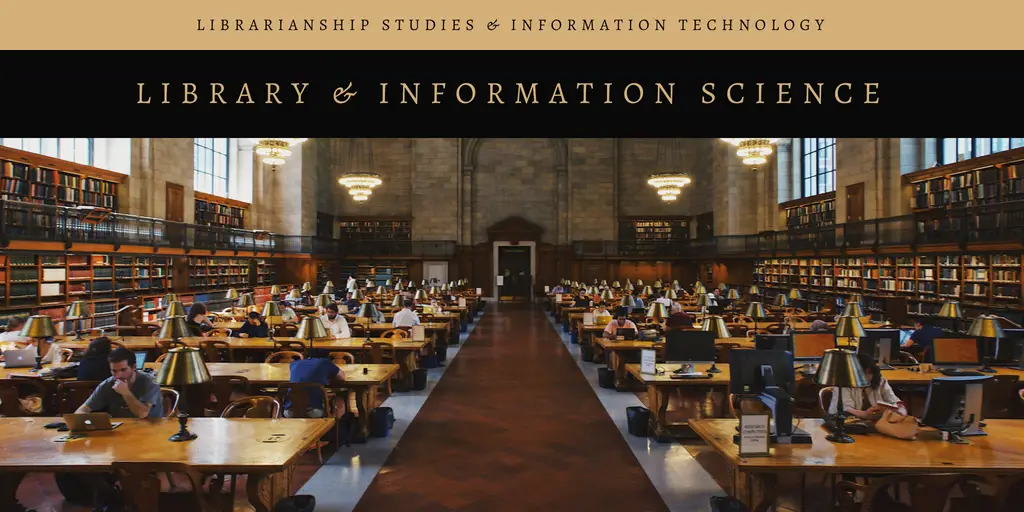
Library and Information Science (LIS) is a field that involves the organization, preservation, and dissemination of information. This field can make significant contributions to the world in several ways:
Information Access: Libraries and information professionals ensure access to information, which is critical in our knowledge-driven society. This access supports education, research, and informed decision-making.
Digital Literacy: Library and information professionals play a crucial role in promoting digital literacy, helping individuals to effectively navigate and use digital information.
Preservation of Knowledge: Libraries and archives preserve knowledge, ensuring that valuable information, from cultural heritage to scientific data, is not lost.
Bridging the Digital Divide: Libraries often provide free internet access and digital resources, helping to bridge the digital divide and promote digital inclusion.
Community Services: Libraries often serve as community hubs, providing a range of services from literacy programs to community outreach activities.
The potential for Library and Information Science to change the world is recognized in numerous academic and policy literature. For example:
- “The Atlas of New Librarianship” by R. David Lankes
- “Libraries and the Enlightenment” by Wayne Bivens-Tatum
- “Libraries = Strong Communities: A Call to Action” by American Library Association President Loida Garcia-Febo
#16. Neuroscience and Cognitive Science
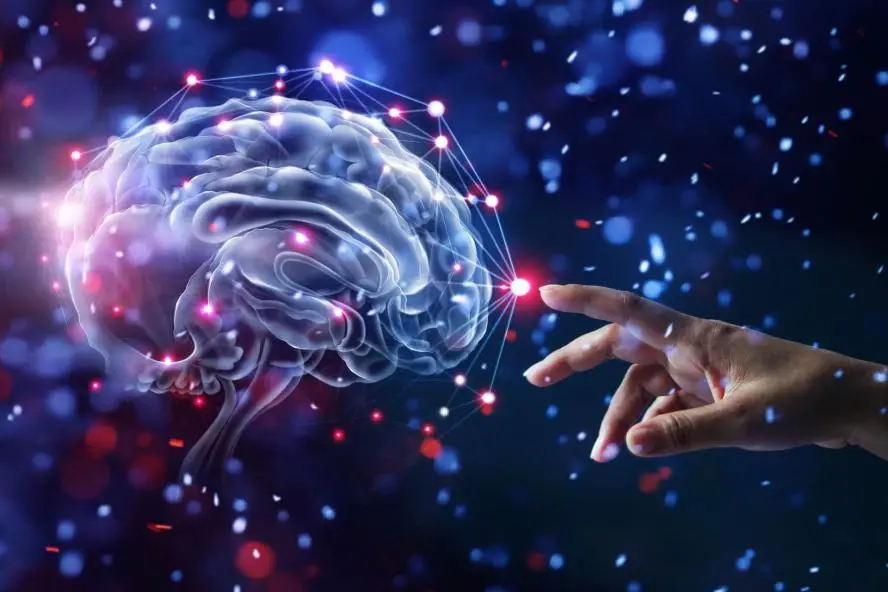
Neuroscience and Cognitive Science are fields that study the brain and mind, respectively. They hold significant potential to change the world:
Understanding the Brain: Understanding how the brain works can lead to breakthroughs in treating neurological disorders like Alzheimer’s, Parkinson’s, and epilepsy.
Mental Health: These fields are fundamental to understanding and treating mental health conditions, including depression, anxiety, and schizophrenia.
Cognitive Enhancements: Cognitive science can inform the development of techniques and technologies for cognitive enhancement, potentially improving memory, attention, creativity, and more.
Artificial Intelligence: Insights from neuroscience and cognitive science can inform the development of more advanced artificial intelligence systems.
Education and Learning: Understanding how the brain learns can improve educational strategies and outcomes, benefiting learners of all ages.
The potential for Neuroscience and Cognitive Science to shape the world is widely recognized in academic and scientific literature. Here are a few sources:
- “The Future of the Brain: Essays by the World’s Leading Neuroscientists” edited by Gary Marcus and Jeremy Freeman
- “The Tell-Tale Brain: A Neuroscientist’s Quest for What Makes Us Human” by V.S. Ramachandran
- “The Cognitive Neurosciences” edited by Michael S. Gazzaniga, George R. Mangun, and Elizabeth A. Kensinger
#17. Data Science and Big Data Analytics
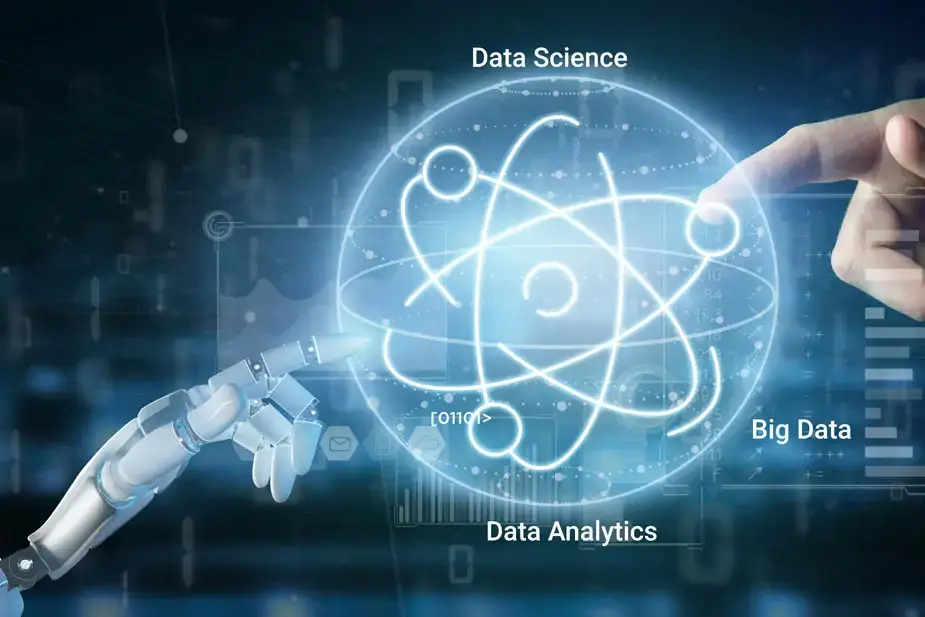
Data Science and Big Data Analytics involve the collection, management, and analysis of large datasets. These fields can significantly impact our world in numerous ways:
Decision-Making: Data science can inform decision-making in almost every sector, from business and healthcare to education and government, enabling more evidence-based strategies.
Predictive Analytics: Big data analytics can be used for predictive purposes, forecasting trends in markets, weather, disease outbreaks, and more.
Improving Efficiency: Companies and organizations can use data analysis to optimize their operations, increasing efficiency and reducing costs.
Personalization: Data science is integral to personalization algorithms used by online platforms, tailoring content to individual users based on their behavior and preferences.
Scientific Research: Data science techniques are used in scientific research to analyze large datasets, uncovering patterns and insights that can advance our understanding in various fields.
The significance of Data Science and Big Data Analytics in shaping the world is extensively discussed in academic literature and industry reports. Here are a few sources:
- “Big Data: A Revolution That Will Transform How We Live, Work, and Think” by Viktor Mayer-Schönberger and Kenneth Cukier
- “Data Science for Business: What You Need to Know about Data Mining and Data-Analytic Thinking” by Foster Provost and Tom Fawcett
- “The Wall Street Journal Guide to Information Graphics: The Dos and Don’ts of Presenting Data, Facts, and Figures” by Dona M. Wong
#18. Systems Engineering and Complex Systems

Systems Engineering and Complex Systems involve the design, analysis, and management of complex systems, from electrical grids and transportation networks to ecosystems and economies. These fields can have a significant impact on our world:
System Design and Management: Systems engineering is essential for designing and managing complex systems that underpin our societies, from infrastructure and transportation to telecommunications and energy systems.
Problem-Solving: Understanding complex systems can help us address challenging problems, such as climate change, healthcare delivery, and urban planning.
Risk Management: Systems engineering techniques can aid in identifying and mitigating risks in complex systems, enhancing safety and resilience.
Efficiency: Systems engineering can improve the efficiency of systems, saving resources and reducing environmental impact.
Interdisciplinary Research: The study of complex systems often requires interdisciplinary research, integrating insights from physics, biology, computer science, social sciences, and more.
The potential for Systems Engineering and Complex Systems to shape the world is recognized in numerous academic, scientific, and industry sources. Here are a few:
- “Systems Engineering Principles and Practice” by Alexander Kossiakoff, William N. Sweet, Sam Seymour, and Steven M. Biemer
- “Complex Adaptive Systems: An Introduction to Computational Models of Social Life” by John H. Miller and Scott E. Page
- “Making Things Work: Solving Complex Problems in a Complex World” by Yaneer Bar-Yam
#19. Nanotechnology and Materials Science

Nanotechnology and Materials Science involve the study and manipulation of materials at the atomic and molecular scale. These fields have transformative potential in many aspects of our lives:
Advanced Materials: The development of new materials with improved properties can revolutionize numerous sectors, including electronics, healthcare, construction, and energy.
Medical Applications: Nanotechnology can be used for targeted drug delivery, regenerative medicine, and the development of advanced medical devices and diagnostics.
Energy Storage and Conversion: Nanomaterials can improve the efficiency of solar panels, batteries, and fuel cells, contributing to the transition towards sustainable energy.
Environmental Remediation: Certain nanomaterials can be used to remove pollutants from water and air, addressing environmental challenges.
Electronics and Computing: Nanotechnology can lead to faster, smaller, and more energy-efficient electronic devices, including computers and sensors.
The potential for Nanotechnology and Materials Science to shape the world is widely recognized in scientific literature and industry reports. Here are a few sources:
- “Introduction to Nanotechnology” by Charles P. Poole Jr. and Frank J. Owens
- “Materials Science and Engineering: An Introduction” by William D. Callister Jr. and David G. Rethwisch
#20. Robotics and Automation
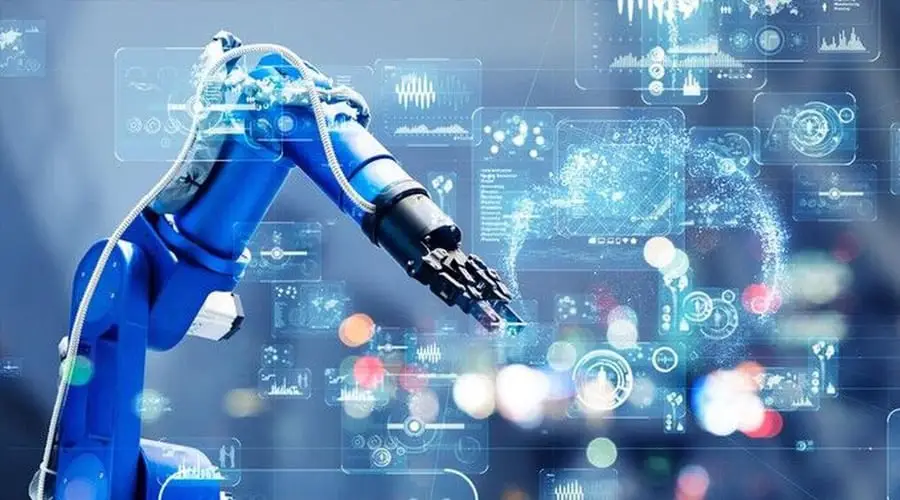
Robotics and Automation involve the design, construction, and use of machines to perform tasks that would otherwise require human intervention. These fields can significantly change the world in several ways:
Industrial Automation: Robotics can increase productivity, improve precision, and reduce human involvement in dangerous tasks in industries such as manufacturing, construction, and agriculture.
Healthcare: Robots can assist in surgery for increased precision, provide physical therapy, aid elderly care, and support in tasks like disinfecting hospital rooms.
Transportation: The development of self-driving cars and automated drones can revolutionize transportation, delivery services, and even warfare.
Disaster Response: Robots can be deployed in environments too hazardous for humans, such as disaster sites, deep-sea exploration, or space missions.
Home and Personal Assistance: Personal and home assistant robots can help with daily tasks, improving the quality of life for people with disabilities or the elderly.
The transformative potential of Robotics and Automation is widely recognized in academic literature, industry reports, and technology trend analyses. Some sources include:
- “Introduction to Robotics: Mechanics and Control” by John J. Craig
- “Robotics: Modeling, Planning and Control” by Bruno Siciliano et al.
- “The Second Machine Age: Work, Progress, and Prosperity in a Time of Brilliant Technologies” by Erik Brynjolfsson and Andrew McAfee.
#21. Cybersecurity and Information Assurance

Cybersecurity and Information Assurance involve protecting information systems from theft, damage, or disruption. They have significant potential to shape the world in a number of ways:
Data Protection: As more data is digitized and stored online, cybersecurity is vital for protecting personal, corporate, and governmental information.
Infrastructure Security: Critical infrastructures, such as power grids, transportation systems, and healthcare facilities, increasingly rely on digital systems, making their protection a paramount concern.
Online Commerce: Secure online transactions are a foundation of e-commerce and the digital economy.
Privacy: With rising concerns about privacy, cybersecurity techniques can help individuals and organizations safeguard their information.
National Security: In the face of cyber warfare and espionage, robust cybersecurity is crucial for national security.
The importance of Cybersecurity and Information Assurance is extensively recognized in academic literature, industry reports, and government documents. Here are a few sources:
- “Computer Security: Principles and Practice” by William Stallings and Lawrie Brown
- “The Cybersecurity to English Dictionary” by Raef Meeuwisse
#22. Global Health and Health Policy
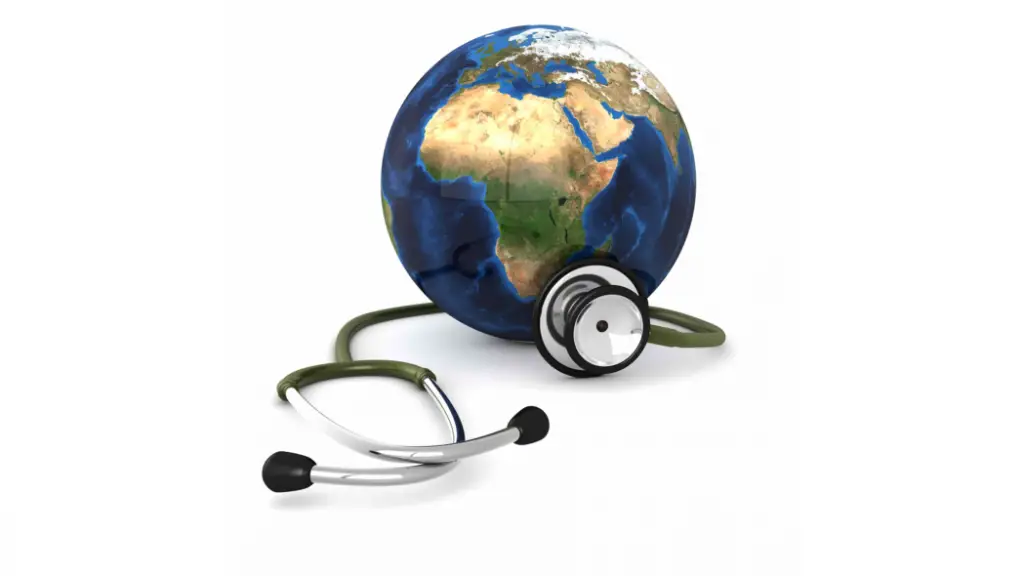
Global Health and Health Policy involves studying and addressing health issues that transcend national borders, focusing on improving health and achieving equity in health for all people worldwide. These fields can significantly impact our world:
Pandemic Preparedness: As the COVID-19 pandemic has shown, global health policy is vital for preparing for and responding to health emergencies.
Health Equity: Global health initiatives can promote health equity, reducing health disparities between different countries and populations.
Health Systems Strengthening: Health policy can strengthen health systems, improving the quality and accessibility of healthcare around the world.
Disease Eradication: Global health efforts can contribute to the control or eradication of diseases, such as polio, malaria, and HIV/AIDS.
Health and Development: Health is intrinsically linked to economic and social development. Improving global health can contribute to broader development goals.
The potential for Global Health and Health Policy to shape the world is recognized in numerous academic, scientific, and policy-making sources. Here are a few:
- “Global Health 101” by Richard Skolnik
- “Health Systems Policy, Finance, and Organization” by Guy Carrin
- “Introduction to Global Health” by Kathryn H. Jacobsen
#23. Astrophysics and Space Exploration

Astrophysics and Space Exploration involve the study of the universe beyond our planet, including the physical and chemical properties of celestial bodies and the phenomena occurring in outer space. These fields can influence our world in several ways:
Scientific Discovery: Astrophysics allows us to understand the fundamental laws of nature and our place in the universe, leading to groundbreaking scientific discoveries.
Technological Innovation: The challenges of space exploration often drive technological advancements that can benefit other sectors, from healthcare to telecommunications.
Resource Utilization: Space exploration could potentially lead to the utilization of off-Earth resources, such as asteroid mining for rare minerals.
Earth Observation: Satellites and other space-based technologies enable critical observations of Earth, informing climate science, meteorology, and disaster management.
Inspiration and Education: Space exploration can inspire generations and encourage interest in STEM (science, technology, engineering, and math) fields.
The potential of Astrophysics and Space Exploration to change the world is acknowledged in numerous scientific literature and space agency reports. Here are a few sources:
- “Astrophysics for People in a Hurry” by Neil deGrasse Tyson
- “The Space Book: From the Beginning to the End of Time, 250 Milestones in the History of Space & Astronomy” by Jim Bell
#24. Oceanography and Marine Biology

Oceanography and Marine Biology involve the study of the ocean and its living organisms. These fields have significant potential to shape the world:
Biodiversity Conservation: Understanding marine ecosystems is key to protecting ocean biodiversity, which is critical for the health of our planet.
Climate Change Research: Oceans play a crucial role in regulating the Earth’s climate. Oceanographic research contributes to our understanding of climate change and its impacts.
Sustainable Fisheries: Research in these fields can help manage fisheries more sustainably, preserving marine resources for future generations.
Discovery of New Medicines: Many marine organisms produce unique bioactive compounds, offering potential for new pharmaceuticals.
Coastal Management: Understanding coastal processes can aid in managing and protecting coastal areas, which are home to a significant portion of the world’s population.
The potential for Oceanography and Marine Biology to influence the world is widely recognized in academic and environmental literature. Here are a few sources:
- “Essentials of Oceanography” by Tom Garrison
- “Marine Biology: A Very Short Introduction” by Philip Mladenov
#25. Genetics and Genomics
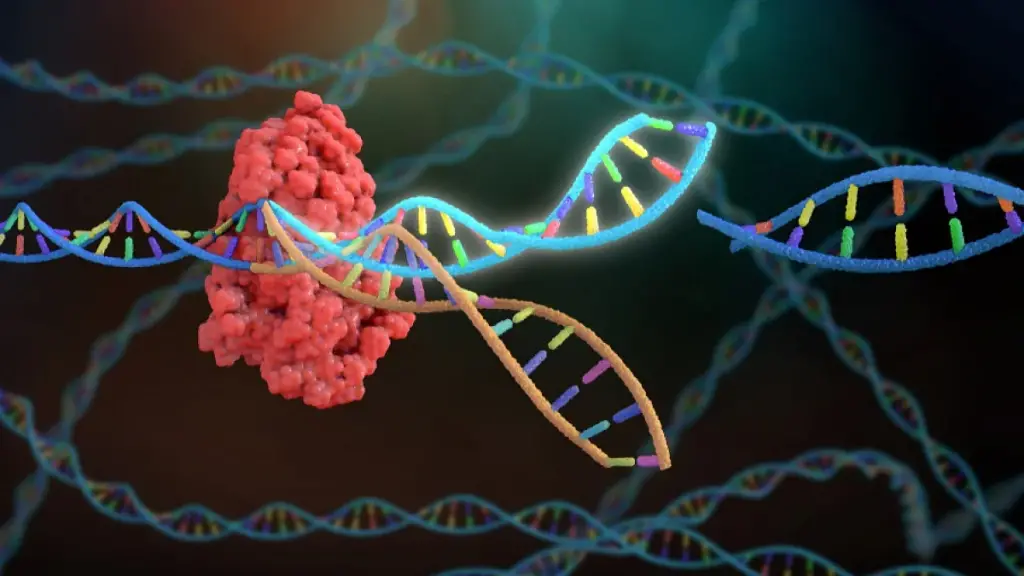
Genetics and Genomics study heredity and the functions and interactions of all the genes in a genome. They have significant potential to shape the world in a number of ways:
Medicine: Advances in genetics and genomics are enabling personalized medicine, where treatment is tailored to an individual’s genetic makeup.
Disease Prevention: Genetic testing can identify individuals at risk for specific genetic disorders, allowing for preventative measures and early treatments.
Agriculture: Genetic modifications can create crops that are more productive, disease-resistant, or adapted to harsh conditions, potentially addressing food security issues.
Conservation: Genetic analysis can help in the conservation of endangered species by providing insights into population dynamics and breeding strategies.
Forensics: Genetic fingerprinting can help in criminal investigations, paternity testing, and identifying remains.
The potential for Genetics and Genomics to influence the world is widely recognized in scientific literature, industry reports, and healthcare documents. Some sources include:
- “Genetics: From Genes to Genomes” by Leland Hartwell et al.
- “Genome: The Autobiography of a Species in 23 Chapters” by Matt Ridley
- “The Gene: An Intimate History” by Siddhartha Mukherjee
#26. Philosophy and Ethics

Philosophy and Ethics involve the study of fundamental questions about existence, reality, knowledge, values, reason, and more. They can shape our world in several significant ways:
Decision Making: Ethical principles guide decision-making at all levels, from individuals to governments, and in various sectors such as healthcare, business, and technology.
Moral Frameworks: Philosophy provides the foundations for moral and ethical frameworks that society uses to determine right from wrong.
Critical Thinking: Philosophy fosters critical thinking skills, empowering people to scrutinize ideas and arguments and make informed decisions.
Policy Development: Ethics play a critical role in policy development, shaping laws and regulations that govern societies.
Technological and Scientific Advancements: As technology and science advance, ethical considerations become more complex and important, whether in relation to artificial intelligence, genetic modification, or data privacy.
The importance of Philosophy and Ethics is widely recognized in academic literature, societal discourse, and various professional fields. Here are a few sources:
- “The Elements of Moral Philosophy” by James Rachels and Stuart Rachels
- “Ethics: History, Theory, and Contemporary Issues” by Steven M. Cahn and Peter Markie
- “The Philosophy Book: Big Ideas Simply Explained” by DK
#27. Linguistics and Language Technology

Linguistics and Language Technology involve the study of language and the development of technologies that interact with human language. These fields can significantly impact our world in a number of ways:
Communication Technology: Language technology, such as machine translation and voice recognition, can enhance global communication and accessibility.
Education: Linguistic research can inform language education, helping people learn new languages more effectively.
Cultural Preservation: Linguists often work to document and preserve endangered languages, protecting cultural heritage.
Artificial Intelligence: Natural language processing, a subfield of AI, leverages linguistic principles to enable machines to understand, generate, and interact with human language.
Information Access: Search engines, chatbots, and digital assistants, all rely on language technology to understand and respond to user queries.
The potential for Linguistics and Language Technology to influence the world is widely recognized in academic literature, industry reports, and technology white papers. Here are a few sources:
- “The Handbook of Linguistics” by Mark Aronoff and Janie Rees-Miller
- “Speech and Language Processing” by Daniel Jurafsky and James H. Martin
- “Natural Language Processing with Python” by Steven Bird, Ewan Klein, and Edward Loper
#28. Human-Computer Interaction and User Experience Design

Human-Computer Interaction (HCI) and User Experience (UX) Design involve the design and use of computer technology, focusing on the interfaces between people and computers. They can have a significant impact on our world:
Enhanced Usability: HCI and UX design are all about making technology more accessible and easier to use, which can enhance productivity and satisfaction among users.
Technology Adoption: Good UX design can drive the adoption of new technologies by making them more intuitive and user-friendly.
Accessibility: HCI also focuses on designing technology that is accessible to people with a variety of abilities and disabilities, increasing inclusivity.
Health and Safety: Well-designed human-computer interfaces can reduce the risk of health issues related to technology use, such as repetitive strain injuries, and enhance safety in contexts like vehicle operation.
Product Success: A positive user experience can make a product more successful in the market, driving economic activity.
The importance of HCI and UX design is widely recognized in academic literature, industry reports, and technology development. Here are a few sources:
- “Designing the User Interface: Strategies for Effective Human-Computer Interaction” by Ben Shneiderman and Catherine Plaisant
- “The Design of Everyday Things” by Donald A. Norman
- “Don’t Make Me Think, Revisited: A Common Sense Approach to Web Usability” by Steve Krug
#29. Medical Engineering and Biomedical Devices
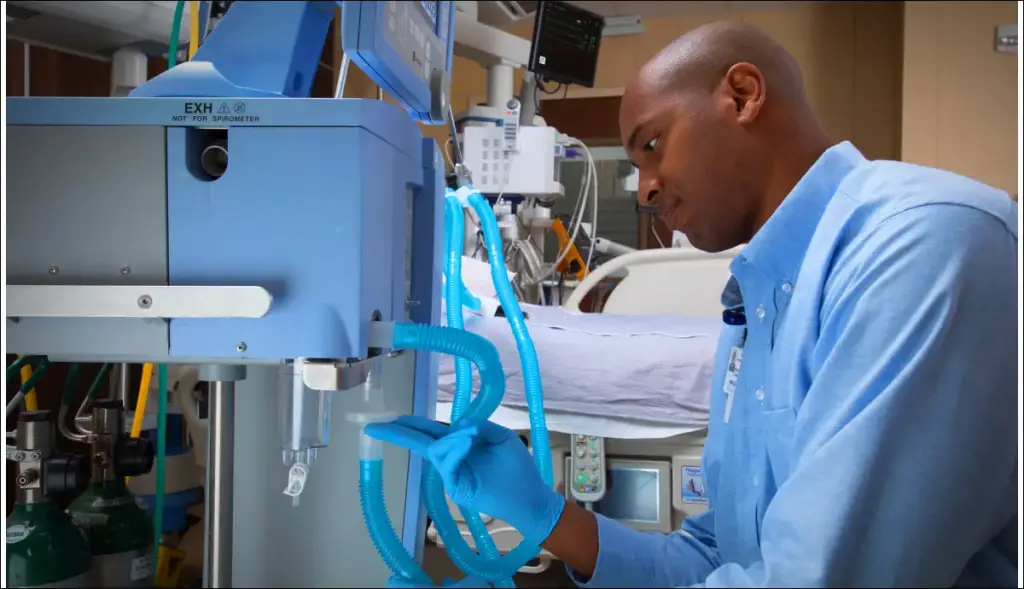
Medical Engineering, often referred to as Biomedical Engineering, and the study of Biomedical Devices involve the application of engineering principles and design concepts to medicine and biology. These fields can impact our world in several significant ways:
Improved Healthcare: Medical engineering can lead to the development of new devices, tools, and methods for diagnosing, treating, and preventing diseases, thereby improving patient care.
Prosthetics and Implants: Medical engineers design and improve prosthetic limbs and implantable devices, enhancing the quality of life for individuals with certain conditions or disabilities.
Medical Imaging: Innovations in medical imaging technologies, like MRI or ultrasound, have revolutionized diagnostics and treatment planning.
Telemedicine and Remote Monitoring: Biomedical devices and software can enable remote monitoring of patients, improving access to care and patient outcomes, especially in rural or underserved areas.
Research and Development: Medical engineering also plays a critical role in the research and development of novel therapeutic strategies, including gene and cell therapies.
The potential for Medical Engineering and Biomedical Devices to influence the world is widely recognized in scientific literature, industry reports, and healthcare documents. Some sources include:
- “Introduction to Biomedical Engineering” by John Enderle, Susan Blanchard, and Joseph Bronzino
- “Biodesign: The Process of Innovating Medical Technologies” by Paul Yock, Stefanos Zenios, and Josh Makower
- “Medical Device Technologies: A Systems-Based Overview Using Engineering Standards” by Gail Baura
#30. Disaster Management and Humanitarian Response

Disaster Management and Humanitarian Response is a major that focuses on preparing for, responding to, and recovering from natural and human-made disasters. It is an essential field in today’s world due to the increasing frequency and severity of disasters, which are often exacerbated by climate change, population growth, and urbanization.
Here are some reasons why this major has the potential to change the world:
Increasing frequency of disasters: The number and intensity of natural disasters, such as hurricanes, floods, and wildfires, have been rising in recent years due to climate change. As a result, there is a growing need for professionals who can manage disaster response and recovery efforts.
Humanitarian crises and conflict: Ongoing conflicts and political instability in many parts of the world have led to widespread displacement of populations, creating complex humanitarian emergencies. Disaster management and humanitarian response professionals can help address the needs of these affected populations and work towards sustainable solutions.
Urbanization and vulnerable populations: Rapid urbanization and population growth in low-income countries have increased the vulnerability of communities to disasters. Professionals in disaster management can work to build resilience and reduce the impact of disasters on these vulnerable populations.
Technological advancements: Advances in technology, such as remote sensing, GIS, and social media, have improved the ability to monitor, predict, and respond to disasters. This major equips students with the skills to leverage these technologies and develop innovative solutions for disaster management.
Interdisciplinary approach: Disaster management and humanitarian response is an inherently interdisciplinary field, combining knowledge from various domains such as environmental science, public health, engineering, and social sciences. This interdisciplinary approach enables professionals to develop holistic solutions to complex disaster-related challenges.
Global collaboration: Disasters often transcend national borders and require a coordinated international response. This major prepares professionals to work in international organizations, non-governmental organizations, and government agencies, fostering global collaboration and knowledge sharing.
The importance of Disaster Management and Humanitarian Response is widely recognized in academic literature, policy documents, and humanitarian reports. Here are a few sources:
- Intergovernmental Panel on Climate Change
- United Nations High Commissioner for Refugees
- World Bank
- International Journal of Emergency Management
- International Journal of Disaster Risk Reduction
- United Nations Office for Disaster Risk Reduction
Final Thoughts
Remember, your ability to make a difference in the world depends not only on your major but also on your passion, dedication, and willingness to collaborate with others.
No matter which college major you choose, focus on developing a deep understanding of your field and staying informed about global issues to maximize your impact.
FAQs
Q1. What are the top majors most likely to change the world in the next decade?
The best college majors most likely to change the world in the next decade are Artificial Intelligence/Computer Science, Renewable Energy Engineering, Bioengineering, Data Science and Analytics, Cybersecurity, Sustainable Agriculture, Environmental Science, Global Health, Robotics, and Urban Planning.
Q2. How will studying Artificial Intelligence change the world in the next decade?
Studying Artificial Intelligence (AI) will have a significant impact on various fields, such as healthcare, transportation, and automation. AI can revolutionize industries by improving efficiency, creating personalized experiences, and aiding in complex problem-solving.
Q3. In what ways will Renewable Energy Engineering make a difference in the next decade?
Renewable Energy Engineering focuses on developing sustainable energy sources like solar, wind, and hydroelectric power. As the world transitions to cleaner energy alternatives, professionals in this field will play a crucial role in reducing carbon emissions and combating climate change.
Q4. What contributions can Bioengineering make to society in the next decade?
Bioengineering combines principles of engineering and biology to develop innovative solutions in medicine, agriculture, and environmental conservation. It can lead to advancements in areas such as regenerative medicine, genetically modified crops, and bioremediation.
Q5. How does Data Science and Analytics have the potential to change the world?
Data Science and Analytics involve analyzing vast amounts of data to gain valuable insights. This field can drive advancements in healthcare, business decision-making, urban planning, and personalized services, leading to improved efficiency and better-informed decisions.
Q6. What impact will Cybersecurity have on society in the next decade?
With the increasing dependence on digital technologies, Cybersecurity will play a vital role in protecting sensitive information and critical infrastructure. Professionals in this field will contribute to safeguarding personal data, preventing cyberattacks, and ensuring the integrity of digital systems.
Q7. How will Sustainable Agriculture shape the world in the next decade?
Sustainable Agriculture focuses on environmentally friendly farming practices, reducing waste, and promoting biodiversity. It aims to address food security challenges, minimize environmental impact, and develop sustainable food production systems to feed a growing global population.
Q8. In what ways can Environmental Science make a positive impact on society?
Environmental Science encompasses the study of ecosystems, natural resources, and environmental issues. Experts in this field can contribute to mitigating climate change, conserving biodiversity, managing natural resources, and developing sustainable policies.
Q9. What role does Global Health play in shaping the future?
Global Health professionals work towards improving healthcare systems, disease prevention, and promoting well-being worldwide. With a focus on addressing global health disparities and epidemics, this field can bring about transformative changes in healthcare access and outcomes.
Q10. How can Robotics and Automation influence society in the next decade?
Robotics and Automation have the potential to revolutionize industries such as manufacturing, healthcare, and transportation. These technologies can increase productivity, enhance safety, and create new opportunities for efficiency and innovation, leading to significant societal transformations.
Q11. What are the majors other than those above which are intertwined and allow individuals to grow and change the world?
Engineering and computer programming are closely intertwined disciplines that require a strong foundation in both. Students pursuing an engineering or computer science degree often engage in rigorous coursework encompassing mathematics, physics, and algorithms.
On the other hand, those with a liberal arts degree, such as political science, can also find their way into the tech industry by pursuing additional training in software engineering.
Both software engineering majors and computer science degree holders have excellent opportunities to explore cutting-edge technologies and contribute to the ever-evolving world of computer programming.’


